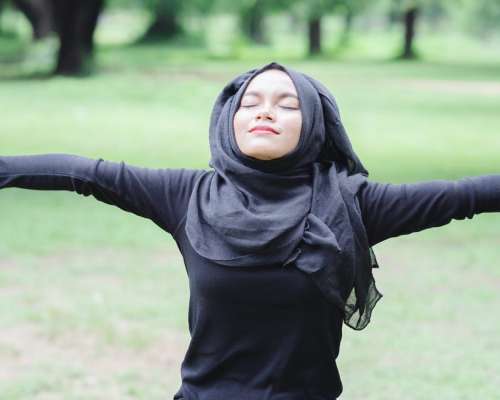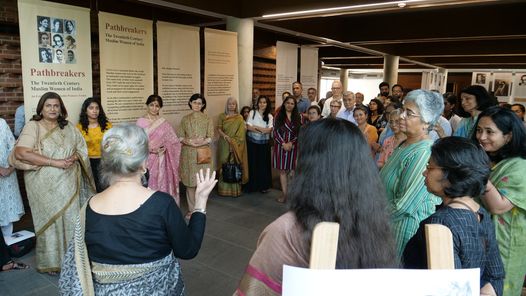
Do not miss this exhibition that extols the contribution of 20th-century Indian Muslim women
An interesting travelling exhibition is set for a re-run in New Delhi once the pandemic containment rules are eased further. Titled ‘Pathbreakers: The 20th Century Muslim Women of India’, it showcases 21 Indian Muslim women who broke the proverbial glass ceiling and refused to be stereotyped. The exhibition was earlier held in the national capital in 2018.
Speaking to the media in 2018, Syeda Hameed, chairperson of Muslim Women’s Forum (MVF), the organisation which assembled the exhibition, had said that the main idea was to bring to the forefront a galaxy of Indian Muslim women who contributed to nation building in various ways but largely remained unrecognised and unsung.
The women featured in the earlier exhibition include Anis Kidwai, Atiya Fyzee, Attia Hosain, Aziza Fatima Imam, Fathema Ismail, Hamida Habibullah, Hajrah Begum, Masuma Hosain Ali Khan, Mofida Ahmed, Mumtaz Jahan Haider, Qudsia Zaidi, Qudsia Aizaz Rasul, Razia Sajjad Zaheer, Saeeda Khurshid, Safia Jan Nisar Akhtar, Saliha Abid Hussain, Sharifa Hamid Ali, Siddiqa Kidwai, Surayya Tayabji, Tyeba Khedive Jung, and Zehra Ali Yavar Jung. Most of them left their marks in fields as diverse as politics, literature and social work.

Tyeba Khedive Jung, the first Indian Muslim woman to receive a university degree in 1894, wrote a feminist novel ‘Anwari Begum’ way back in 1905 that spoke about women’s emancipation, and also chaired an annual conference of Brahmo Samaj, a Hindu reformist organisation. Sharifa Hamid Ali was a member of the Constituent Assembly. Although the jury is still out about who designed the Indian National Flag, according to many it was Surayya Tayabji who was responsible for the inclusion of the Ashok Chakra. Qudsia Zaidi, among other things, is famous as the founder of the Hindustani Theatre in 1955, said to be Delhi’s first post-independence professional theatre troupe. Fathema Ismail was instrumental in opening rehab clinics for children suffering from polio.
The exhibition was visiting Bengaluru just before the COVID-19 related lockdown was implemented.
source: http://www.outlookindia.com / Outlook Traveller / Home> Explore > Story / by Uttara Gangopadhyay /August 14th, 2020








